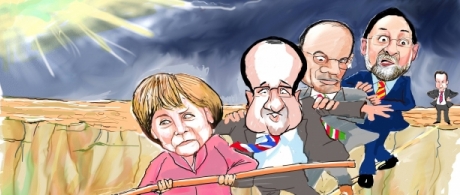The deal on chemical weapons reached by Russia and the United States marks the latest chapter in the West’s effort to stay out of Syria’s civil war. After Russia’s diplomatic initiative, a military strike has been avoided. The White House says that diplomacy backed by a credible military threat has succeeded, and European leaders claim that their appeal for a UN process was heard. Obama’s wish to avoid military solutions may have created new momentum for negotiations with Iran. But this moment of jubilation could be short-lived: a daunting task at the UN awaits; military action may still be needed; and transatlantic cohesion has been damaged.

For more than two years, US and European governments have successfully navigated developments that could otherwise have formed a casus belli and led to Western entanglement in Syria. In the summer of 2012, the Syrian military shot down a Turkish air force jet, and was accused by Ankara of lobbing mortars over the Turkish-Syrian border and staging car bombings in southern Turkish towns. The attack on a NATO member-state could have triggered military action against Syria, but instead the alliance showed restraint and sent German, Dutch and US air defence batteries to southern Turkey.

For more than two years, US and European governments have successfully navigated developments that could otherwise have formed a casus belli and led to Western entanglement in Syria. In the summer of 2012, the Syrian military shot down a Turkish air force jet, and was accused by Ankara of lobbing mortars over the Turkish-Syrian border and staging car bombings in southern Turkish towns. The attack on a NATO member-state could have triggered military action against Syria, but instead the alliance showed restraint and sent German, Dutch and US air defence batteries to southern Turkey.

